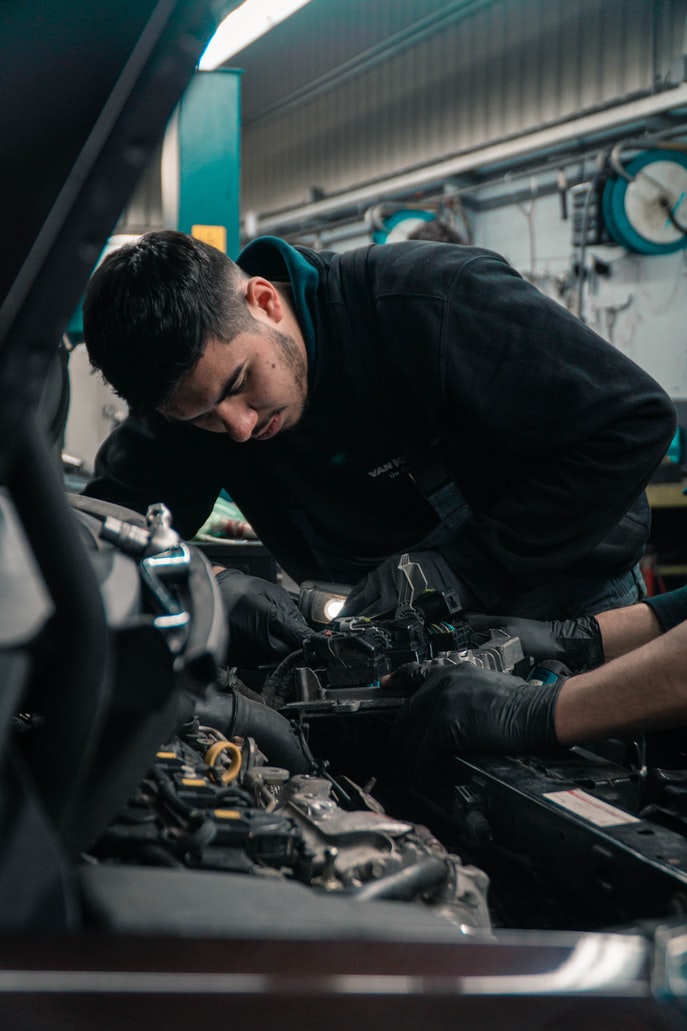Your car is a complex machine comprised of various systems and components that work together to keep you moving safely and efficiently. One of these components is the alternator – a critical part of your vehicle’s electrical system. Any auto mechanic can tell you that the alternator plays a crucial role in maintaining the battery’s charge and powering the car’s electrical components. That includes the headlights, radio, and air conditioning system. Without a functioning alternator, your car will not run properly. So, if you suspect you might have issues with your alternator, read on to find out what you can do about it.
What is an Alternator & What Does it Do?
The alternator is a small generator that produces electricity to power your car’s electrical systems and recharge the battery. It is connected to the engine by a belt and spins as the engine runs. As the alternator turns, it generates electricity, which is sent to the battery for storage. The battery then uses this stored energy to power the various electrical components in your car.
Signs of a Failing Alternator
If your alternator starts to fail, you may notice some warning signs. A warning light on your dashboard is one of the most common signs of a failing alternator.
This light is typically shaped like a battery and may say “ALT” or “GEN.” Other signs of a failing alternator include:
- Dimming headlights: Typically, it’s a sign that your alternator is not producing enough power to keep your car’s electrical systems running correctly.
- A weak or dead battery: Another sign of a failing alternator is a weak or dead battery. The most obvious indication is if your battery is not charging correctly, resulting in your car being unable to power its electrical systems for very long.
- Strange noises are coming from the engine: What are usually the warning signs? Notably, if you hear any grinding or whining sounds, it can indicate a failing alternator.
- A burning smell: Finally, a burning smell can indicate that the alternator is overheating and may need to be replaced.
Why Do Alternators Fail?
There are several reasons why alternators fail. One of the most common causes of alternator failure is a worn-out belt. The belt that connects the alternator to the engine can become cracked, frayed, or stretched over time, causing it to slip and fail to spin the alternator correctly. Another common cause of alternator failure is a faulty voltage regulator. The voltage regulator controls the amount of power the alternator produces and sends to the battery. If the voltage regulator fails, it can cause the alternator to overcharge or undercharge the battery, leading to premature failure.
What to Do if You Suspect a Failing Alternator
If you suspect that your alternator is failing, you should first take your car to a trusted auto mechanic. They can diagnose the problem and determine whether the alternator needs to be repaired or replaced. In the meantime, you should avoid using any unnecessary electrical components in your car, such as the radio or air conditioning, to conserve your battery’s charge. You should also avoid driving your vehicle long distances, as a failing alternator can cause your battery to die quickly.
How to Diagnose a Failing Alternator
A qualified auto mechanic can diagnose a failing alternator using various diagnostic tools and techniques. They may use a voltmeter to check the amount of power the alternator is producing, or they may use an oscilloscope to check the alternator’s waveform. They may also perform a load test on the battery to determine whether it is holding a charge correctly. Once they have diagnosed the problem, they can recommend the best course of action, whether repairing or replacing the alternator.
Alternator Replacement & Repair Options
If your alternator needs to be replaced or repaired, several options are available. You can take your car to a dealership or an independent auto mechanic. Dealerships tend to be more expensive but may offer a warranty on their work. Independent auto mechanics are usually less costly but may not provide a warranty. You can also choose to replace the alternator if you have the skills and tools necessary. However, doing so can be risky and could make things worse because of your lack of expertise.
How to Prevent Alternator Failure
There are several steps you can take to prevent alternator failure. First, you should have your car’s electrical system inspected regularly by a qualified auto mechanic. They can check the condition of the belt and voltage regulator and make any necessary repairs or replacements. You should also avoid using unnecessary electrical components in your car, such as the radio or air conditioning, to conserve your battery’s charge. Finally, you should avoid driving your vehicle long distances with a failing alternator, as this can cause your battery to die quickly.
Common Misconceptions About Alternator Failure
You should be aware of several common misconceptions about alternator failure. One of the most common misconceptions is that a failing alternator will cause your car to stop running. While this can happen in some cases, it is only sometimes the case. Another common misconception is that you can test the alternator by disconnecting the battery while the engine is running. That is not a reliable test and can cause damage to your car’s electrical system.
Your alternator is a critical part of your car’s electrical system, and keeping it in good working order is essential. If you suspect your alternator is failing, take your vehicle to a trusted auto mechanic as soon as possible. They can diagnose the problem and recommend the best action, whether repairing or replacing the alternator. By taking preventive measures and working with a qualified auto mechanic, you can extend the life of your alternator and keep your car running smoothly.
